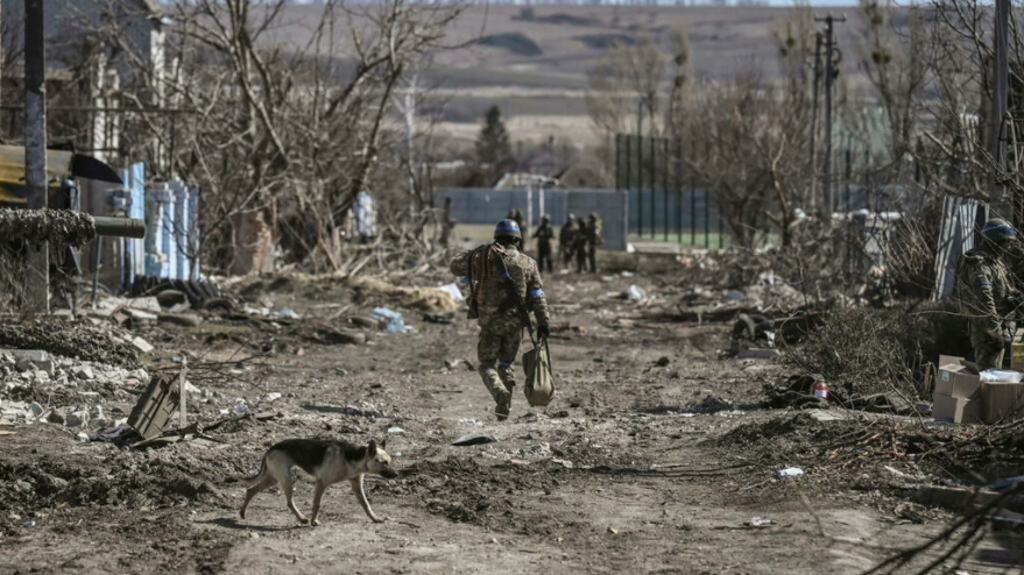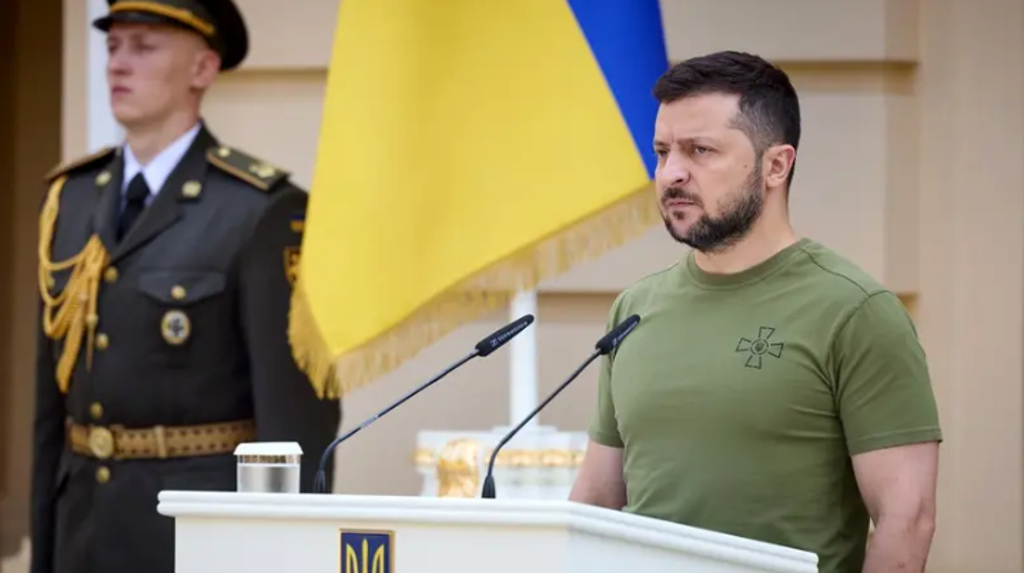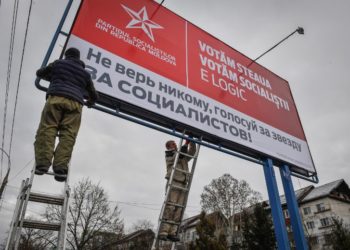The war in Ukraine and the threat of invasion looming over Taiwan have once again made the question of national sovereignty germane in our day.
Many argue that Ukraine, being one of the founding states of the Soviet Union and a Russian possession dating back to the 17th century, is a historical appendage of Russia that President Vladimir Putin has a right to retrieve with impunity.
Though these believers think they’re relying on the historical record to substantiate their point, they are clueless about the historical notions of sovereignty — any understanding that would refute the legitimacy of Russia’s current claim to Ukraine.
Law of Nations
In 1815, after more than 20 years of war, the European states faced a historically unprecedented dilemma. Napoleon was just defeated, and the question of what to do with the French Empire’s remnants was very much in dispute.
The Great Powers summoned an international summit of nobility, statesmen, and royalty to sort out their competing political claims and to rebuild the international order riven by constant war.
Seated around a table, the representatives from France, Russia, England, Austria, and Prussia were putting the finishing touches on a declaration to announce the convocation of the “Congress of Vienna” when the foreign minister of France, Charles-Maurice de Talleyrand, demanded a revision.
He would not sign the declaration unless the Congress indicated in writing that its proceedings would be performed “according to the principles of the law of nations.” The other delegates were immediately stirred and outraged — but why?
Because an adherence to the law of nations meant an adherence to restraint, to established proceedings, and a commitment to the creation of a just and stable international order at the cost of each state’s private interest.
The law of nations was a set of customs that governed legitimate international conduct for centuries and were deliberately fashioned to mitigate the destructive effects of war.
Never officially codified, the law of nations was a political ethos that, in the words of Montesquieu, was “based on the principle that the diverse nations should do each other the most good during peacetime and the least harm during wartime without harming their true interests.”
It transfigured the morality of natural law into a theory of international relations and it described and defined just wars, fair trade relations between states, and most useful to our current international climate, matters of sovereignty.
Question of Sovereignty
In light of the war in Ukraine, the question of sovereignty has become an increasingly pertinent global issue. There seems to be confusion about what rights Russia possesses over Ukraine, if any.
Most in the West would agree that Ukraine, being an independent and internationally recognized country for the past 30 years, is a sovereign nation that has suffered an unprovoked assault.
But as reports from Russia indicate, this sentiment is not universal. Many believe that Russia’s long, historical possession of Ukraine implies it rightfully belongs to Russia and that while the war itself may be lamentable, Russia’s claim to Ukraine is justified in the annals of history.

Implicit in this argument is the belief that modern conceptions of sovereignty – which unquestionably support Ukraine’s right as an independent country – are inadequate and that sovereignty has never legitimately passed from Russia to Ukraine.
If our current principles of sovereignty are inadequate to appraise the situation in Ukraine, then perhaps those which held sway for most of the centuries in which Russia possessed Ukraine may prove to be more enlightening.
The law of nations is clear on sovereignty. Sovereignty is only capable of being legitimately transferred through a treaty of cession. When the sovereign cedes all or a portion of its rights to another power by legal treaty, it permanently loses its claim to what was given up and cannot appeal for its return based on any claim to their prior sovereignty.
A treaty violation is a breach of contract, which opens up the possibility for lawfully reacquiring sovereignty, but barring this event, the cession is final.
Annexation, therefore, without a clear agreement surrendering the conquered territory fails to confer sovereignty to the invader, even though they may possess the territory for many years because sovereignty is not transferable by conquest alone.
Fall of the Soviet Union
According to these precepts then, if Russia once possessed sovereignty over Ukraine, it irrevocably lost it when the Soviet Union relinquished the territory through a legal agreement in 1991.
As the USSR’s power began to crumble and as pressure for independence mounted across Eastern Europe, Mikhail Gorbachev proposed a referendum to the Soviet states asking whether the USSR should be “renewed as a federation of equal sovereign republics in which the rights and freedom of any individual of any ethnicity will be fully guaranteed.”
The states voted overwhelmingly in the affirmative for this restructuring, but Soviet hardliners launched a coup against Gorbachev to prevent this legislation from being passed. Though the August Coup failed, the Soviet republics began to fear for their futures and started declaring their independence en masse.
The USSR was obviously willing to surrender its sovereignty to begin with as indicated by the referendum, but the transference of sovereignty over Ukraine was finally transacted when representatives from Russia, Ukraine, and Belarus signed a treaty dissolving the USSR and establishing the Commonwealth of Independent States (CIS).
Russia’s cession of sovereignty was so absolute that the first lines of Article 1 of the CIS Charter read, “The Commonwealth shall be based on sovereign equality of its members. The member states shall be independent and equal subjects of international law.”
By the end of 1992, over 100 countries internationally recognized Ukraine’s independence, including Russia.

No Legitimacy
Clearly, the law of nations sees no legitimacy in Russian claims to Ukraine. In the most lawful fashion, Russia freely gave up its sovereignty over Ukraine —a binding and final act.
Those who point out Russia’s historical possession of Ukraine misunderstand how sovereignty is exchanged in modern societies. Invoking territorial possession from a bygone era as a basis of sovereignty is harkening back to a mode of political thought which hasn’t been legitimately recognized in over three centuries, and which was deliberately supplanted by the law of nations because it tended to incite wars of conquest — much like the current war against Ukraine.
The facts must be remembered: Ukraine’s territorial independence is internationally recognized by over 100 countries, Ukraine has operated as an independent state for over 30 years, and, at the close of the 20th century, Russia legitimately ceded all sovereign rights over the country.
In view of both past and present standards of international law, Russia has absolutely no legal basis for the forced assimilation of Ukraine. The nation’s actions are nothing more than an atavistic war of conquest and a gross violation of a sovereign and independent state.
Disclaimer: The views and opinions expressed here are those of the author and do not necessarily reflect the editorial position of The Globe Post.





















